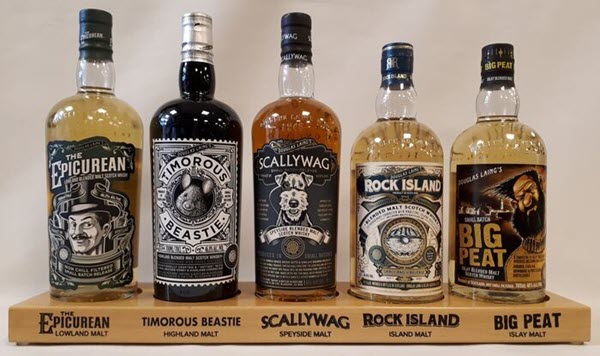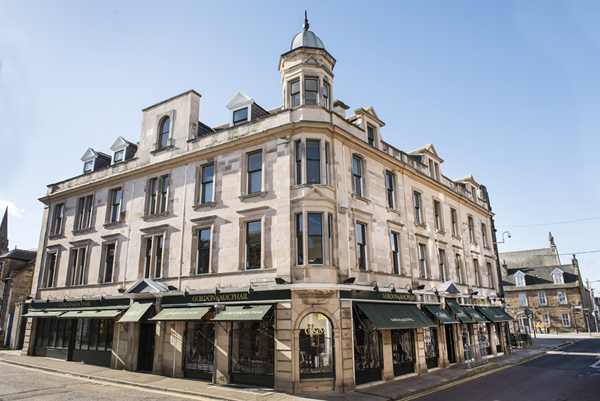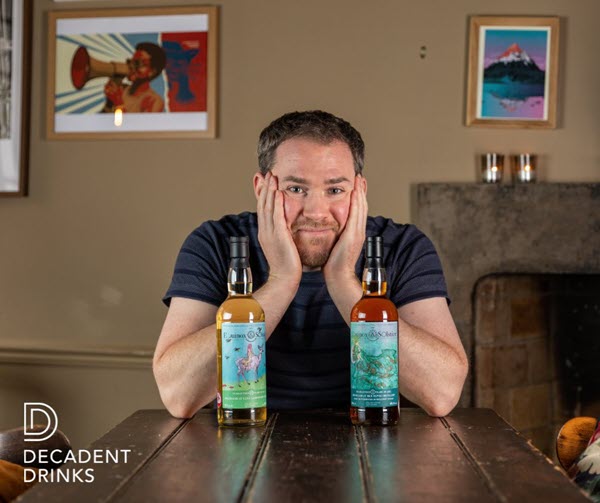Indies Fight Back
It's not just the music industry where corporate giants and small indie labels rub shoulders – it also happens in Scotch whisky. But the relationship, once symbiotic and considered crucial to the spread of single malts, has been showing signs of strain, reports Ian Fraser…
Independent bottlers were once pivotal to the Scotch whisky industry, acting as the main interface and conduit between distillers and the whisky consuming public.
Firms like Cadenhead's (founded 1842), Gordon & MacPhail (1895), and Douglas Laing & Co (1948) played a critical part in introducing much of the world to single malts from the 1950s onwards. Long term trust relationships, in which distillers felt they could rely on such businesses to look after their intellectual property, were the key to success.

However, the sector changed after the large Scotch whisky firms started to become 'vertically integrated' after the 1950s – bottling and marketing their own product, especially single malts, after they opened their own bottling halls across the Lowlands. Ultimately, indie bottlers became more peripheral than pivotal to the industry, although it hasn't stopped them from remaining a profitable and vibrant part of it.
According to some observers, independent bottlers are "the buccaneers" of Scotch whisky, enjoying a freedom of manoeuvre, responsiveness and agility to experiment with new flavours and marketing ideas that largely evades giants such as Diageo.
Rupert Patrick, CEO of James Eadie, an indie bottler and owner of the Trade Mark 'X' blend, says: "The level of excitement and the buzz that a well-respected independent bottler can generate when releasing a new batch of single malts is amazing. We can punch way beyond our weight."
Two months ago, however, the sector received what some describe as a body blow. The granddaddy of indie bottlers, Gordon & MacPhail, declared it was pulling out in order to focus on its two distilleries – The Cairn, completed last year, and Benromach, which it acquired in 1993.

While this isn't going to happen overnight – the Elgin-based company said it will cease filling new casks next year but won't have depleted its stocks of whisky for indie bottlings for at least a couple of decades – it was an unexpected change of direction from the sector's biggest player.
"That wasn't something the industry saw coming," says Alex Bruce, managing director of Adelphi Distillery. "Their departure doesn't affect the indie botting sector per se but it does raise questions about how long third-party fillings – new-make spirit from other distilleries – are going to be available."
Whisky consultant Victor Brierley is more pessimistic, saying: "I don't think independent bottling has a future, because nobody is prepared to sell you the product you need any more. Gordon & Macphail were the godfathers of indie bottling. If they can't get the stock, how is anyone else going to?"
He is alluding to one of the biggest current pressures on the business sector: the surging price of casks. Angus MacRaild, founder of Perth-based bottler Decadent Drinks, recently told an online tasting, "We look all over to find casks. It's very difficult to get supply these days, so we work with brokers, of course, but also buy at auction, and buy from private individuals."
Writing in his semi-satirical Whisky Sponge blog, he blames cask-investment businesses which he describes as "flash-in-the-pan, snake-oil peddling, charlatan, 'liquid gold', asset/portfolio/capital/1000% return", and other even less flattering terms.

Dràm Mòr Group founder Kenny Macdonald blames a 2019 Knight Frank report, which singled out Scotch as one of the most investable commodities, for the "insane" price of casks. He said this fuelled a speculative frenzy in cask investment, with hundreds of "charlatan" players jumping in. Unable to source from conventional sources, many smaller, less well-established indie bottlers were forced to seek to buy on the open market and at auction, which Macdonald says now resembles the "Wild West".
Adelphi's Bruce says: "Good quality casks are still available but the market is shrinking and the prices are highly unstable. With historic contracts, and we have one or two, you can still get hold of stock at proper prices." Brierley suggests that large distillers are effectively punishing the indies for "making too much money".
Other pressures include the surging price of packaging. Dràm Mòr is now having to pay £5.30 to £7.73 for each empty bottle, cork, capsule and plain outer case imported from Europe, three times more than before Brexit. Macdonald says: "Together with the cost of energy and barley, this is putting the whole industry under stress." He adds: "Overall, there are far too many independent bottlers. We're all fighting over an ever-decreasing stock, with an ever-increasing price tag to it."
This almost certainly explains why the trickle of indie bottlers who were following Gordon & Macphail's example and buying or building their own distilleries has become a flood. Andrew Symington, managing director of Signatory Vintage, was an early adopter, buying Pitlochry-based Edradour from Chivas Brothers in 2002.
Bruce says: "One reason we built our distillery was to give us stock (Ardnamurchan single malt) that we could trade with other distillers and brokers for stock to use in Adelphi bottlings. It removes the cash element, effectively levelling the playing field, irrespective of how stratospheric cask prices become." MacRaild has said the reason he and his co-investors are building the 50,000 LPA Kithe distillery near Coupar Angus is as an act of resistance against the "pomposity and silliness" of the modern industry.
Indies can also buy casks of newmake spirit and mature them until ready, possibly to create a blended malt like Douglas Laing & Co, which has led the field with its Remarkable Regional Malts – Big Peat, Scallywag, Timorous Beastie, Rock Island, Epicurean and Gauldrons – launched in 2009.
Others have followed like Dràm Mòr, whose £30 Dumbarton Rock blended malt is "doing well," says Macdonald. "I'm a firm believer that good whisky is for everybody, not just those with deep pockets, so we try our damnedest to keep it as affordable as possible."
Few industry figures seem to share Brierley's despondent view of the indie bottling sector's future, with Bruce confirming that Adelphi has no intention of following G&M's example. "I think it's massively important to the industry as a whole," says Macdonald. "However, if people are serious about being independent bottlers, and they're serious about longevity, I think they have to see this as a stepping stone – a bit like serving an apprenticeship."

Ian Fraser is a financial journalist, a former business editor of Sunday Times Scotland, and author of Shredded: Inside RBS The Bank That Broke Britain.




